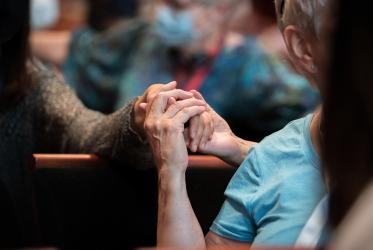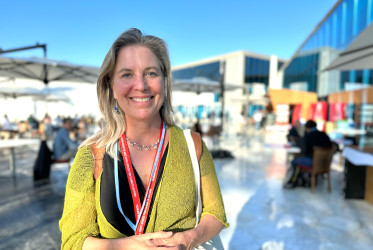Displaying 41 - 60 of 133
Pandemic and pedagogy: what are the valuable lessons?
21 December 2022
Neddy Astudillo at COP27: “We still have the power to protect life”
18 November 2022
Christian Brooks: “Faith and climate really go hand-in-hand”
14 November 2022
Gracia Ross: “Responding to HIV is a moral obligation”
27 September 2022
WCC 11th Assembly: safe and welcoming environment for all
19 September 2022
Assembly workshop looked toward ending AIDS epidemic by 2030
19 September 2022

















